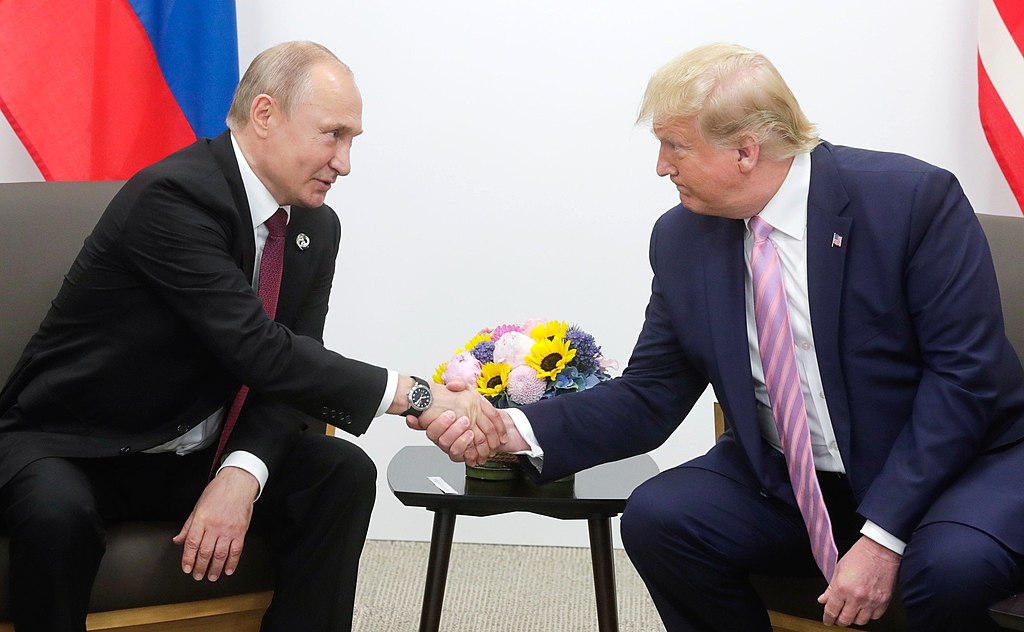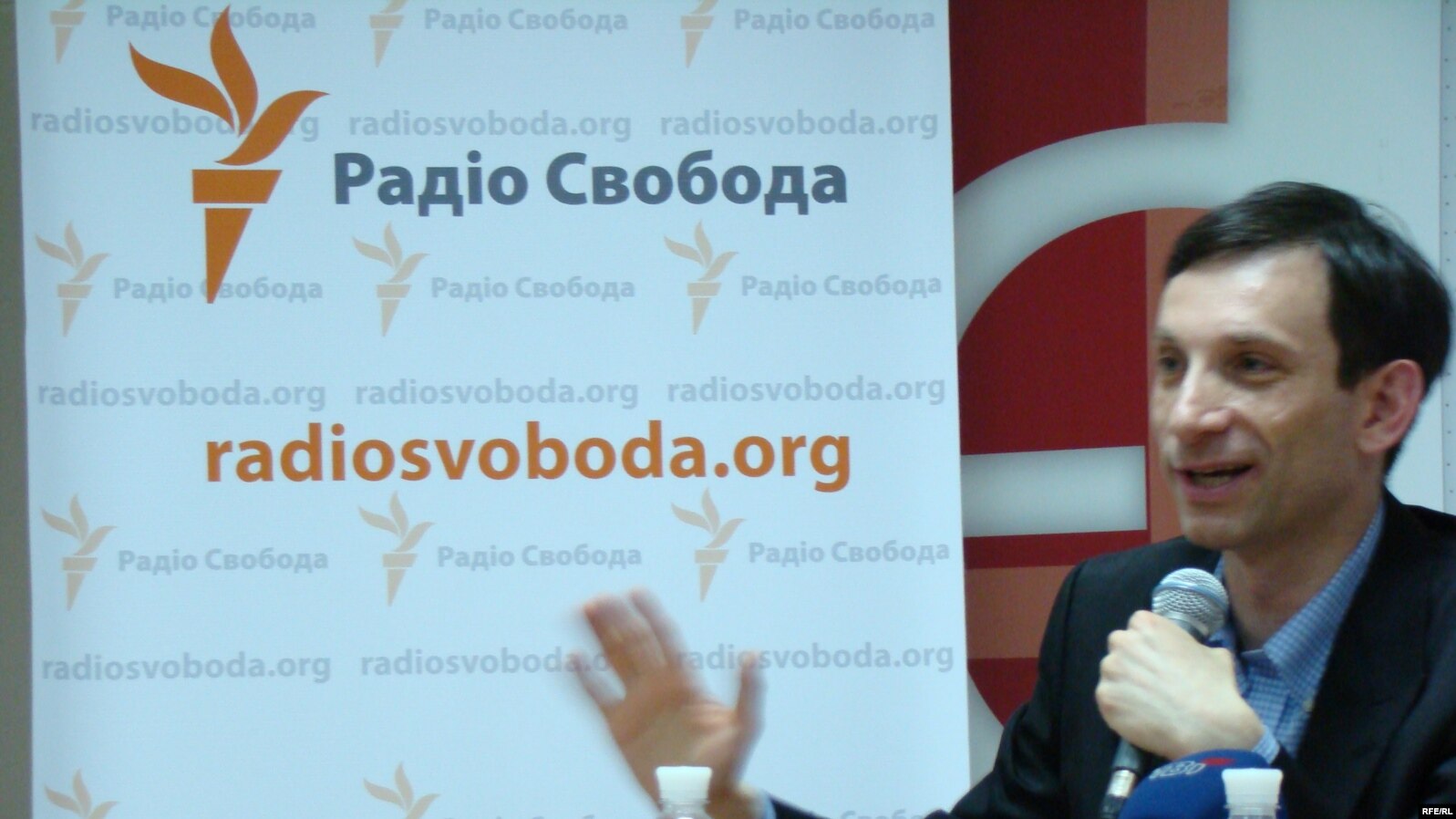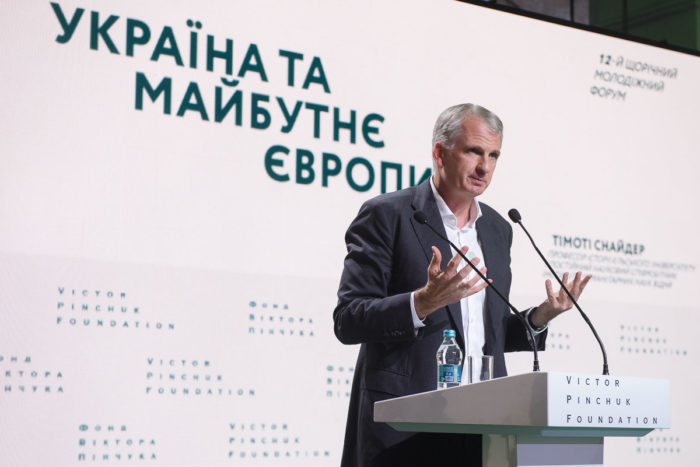"During the August coup in Moscow, I was in a remote village. There was an old radio receiver with knobs. Through hissing, you could find a long wave of Voice of America and learn what was happening [...] because there was only Tchaikovsky's ballet on TV,” recalls Vyacheslav Likhachov, an expert at the Nobel-winning Center for Civil Liberties.
When Soviet hardliners tried to oust Gorbachev in August 1991 — just before the USSR collapsed — state TV replaced news with ballet, its signature signal of crisis. With 290 million citizens in the dark about their states’s looming downfall, many flocked to the newly legalized American media, the USSR’s fiercest rival for decades.
"Radio Liberty was a breath of fresh air and freedom for many who didn't want to hear the nonsense that Soviet propaganda was spreading,” says Zurab Kodalashvili, the outlet’s former divisional director.
On 14 March, 2025, Trump slashed funding for VOA and RFE/RL with a single executive order, calling them “radical propaganda.” As the US federal court hearing pushed the Agency for Global Media (USAGM) to resume partial funding, the Czech Republic — home to RFE/RL’s European headquarters — launched talks with the EU to take over the network.
Meanwhile, Kari Lake, Trump’s appointee to the agency, dubbed spending on these outlets "wasteful" and doubled down on cost-cutting efforts, pledging to “make sure your dollars are not misused."
However, experts warn that slashing America’s top soft power tool — reaching 427 million people in over 60 languages — not only threatens democracy worldwide but risks ceding America’s global leadership to its autocratic rivals, with Russia and China at the top of the list.
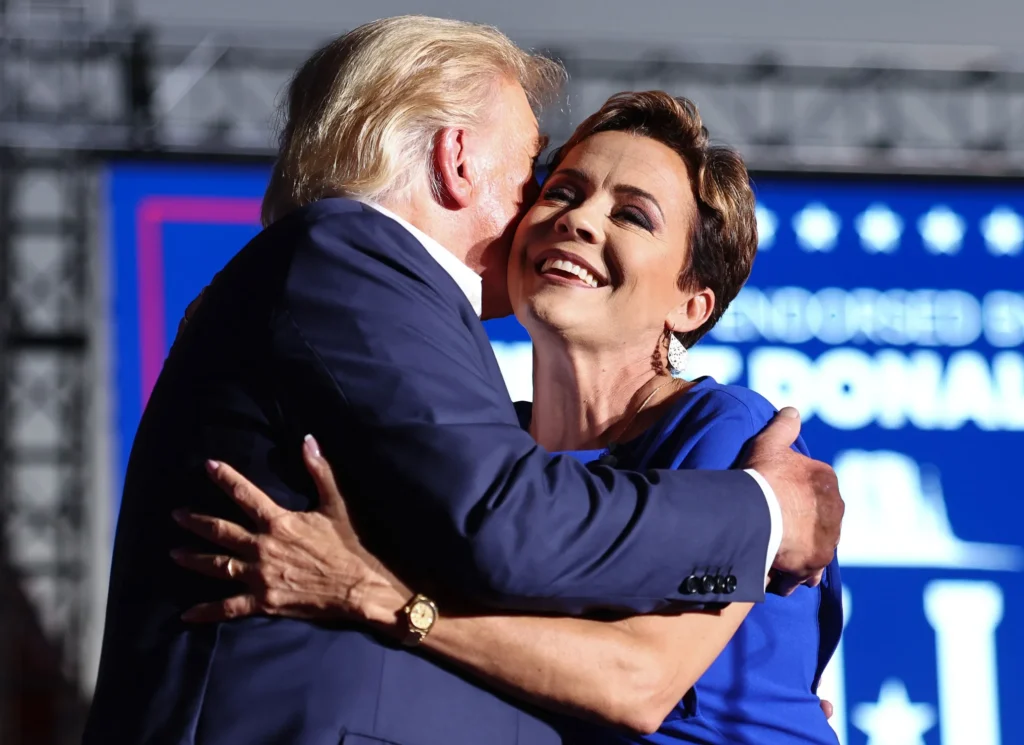
The course on isolationism or a gift for Russia?
The video released by Trump appointee Kari Lake shows her discussing cost-cutting measures as she stands in a building leased by Voice of America, calling them "a waste of money."
However, experts say that defunding goes far beyond trimming the federal budget. With the total budget request for USAGM for 2025 amounting to $950 million — nearly 0.1 percent of the US defense spending — the financial argument appears to be more pretext than substance.
"Moscow doesn't like that there are these voices and some alternative information," Kodalashvili says, suggesting that Trump’s USAGM defunding may cater to the Kremlin’s push to eliminate competing narratives.
Likhachov argues that this move signals a fundamental shift in US foreign policy, narrowing America's focus to its borders while pulling back from global democracy promotion, marking a "reset" with authoritarian regimes.
He adds that the motivation behind this step lies in domestic policy. The Trump administration views these media outlets as promoting a "radical agenda" — a term used to describe almost “any policies of the Democratic Party and the excesses in the fight for human rights that deeply irritate a significant portion of American voters.”
By this logic, international broadcasters promoting democratic values are no longer seen as bipartisan national assets but as tools of the Trump administration’s political opposition — a move that could strike a major blow to American democracy itself.
"Opportunities for intellectual and informational pushback against dictatorial movements are shrinking," Likhachov says.
Trump’s defunding echoes Putin’s media crackdown, expert warns
Unlike state-run outlets like Russia's RT or China's CGTN, American international broadcasters maintain strict editorial firewalls between government funding and content, ensuring accuracy and impartiality in their coverage despite the financial backing.
The USAGM’s bipartisan advisory board ensures its work supports democratic values and US foreign policy without controlling the content, while "firewall" legislation keeps government influence at bay, leaving editors and journalists in charge of production.
Zurab Kodalashvili warns that dismantling this long-tested, impartial press mechanism threatens American democracy, drawing parallels between this step and Putin's crackdown on free media.
"He [Trump] acts exactly the same as Vladimir Putin when he came to power and cleared the information field in Russia with the well-known NTV story," Kodalashvili says. "And now nothing grows there anymore in terms of free speech and free journalism."
After the USSR’s collapse, independent NTV became one of Russia’s top three media outlets, trusted by 70% of the population. Its rise was fueled by impartial reporting and its challenge to Kremlin narratives, particularly tied to its atrocities during the First Chechen War, seeking to retain the break-away region.

Days after Putin’s inauguration in 2000, tax police raided NTV’s headquarters over alleged financial mismanagement. Pressure escalated when state energy monopoly Gazprom, the major creditor of its parent group, demanded repayment, seizing control over the company within a year.
The takeover allowed the Kremlin to install loyalists, transforming NTV into a propaganda tool and ramping up pressure on remaining independent outlets.
"By closing these services, Trump won't stop there," Kodalashvili says. "He will try to silence all media on US territory that criticize him."
Why the US didn’t do it before – and why it was the right choice
Launched during the Cold War to counter communist propaganda — despite the USSR pouring $150 million to jam their signals — both media outlets survived the post-1991 crisis, amid doubt over whether their mission had ended with the collapse of the Soviet Union.
"There was a certain confusion," Kodalashvili says. "Washington itself couldn't understand whether these broadcasts were still needed and promoting of Western ideology in these countries was still necessary."
However, the Soviet collapse didn’t mean the end of Russia’s autocratic path. In the years that followed, Moscow launched invasions in Moldova and Georgia and waged a brutal war in Chechnya, proving that Washington’s optimism was premature.
The situation was no better in other post-Soviet nations that grappled with the legacy of state media control, with American broadcasts becoming a lifeline of impartial reporting.
"They showed what the West thinks about certain events, so people would know something beyond what local media report — which, if they broadcast at all, only praise their rulers," says Kodalashvili, who worked as a RFE/RL journalist in the early 1990s.
Their role grew even more critical after Vladimir Putin rose to power, launching a crackdown on independent media. These outlets were replaced by Russia’s state-controlled propaganda machine, fueled by a savvy information warfare strategy using mass culture, social media, and troll farms — the influence it spreads globally.
Trending Now
Amid the systematic purge of independent Russian media, the Washington-based RFE/RL — labeled "enemy voices" by Soviet authorities, a term that carried into Putin's era — remained one of the key independent outlets challenging his propaganda-driven autocracy, both domestically and across the post-Soviet space.
This came to an end with Russia’s full-scale invasion of Ukraine, which Moscow used to cement its crackdown. In 2022, the RL/RFL website was blocked in Russia for refusing to remove its coverage of the invasion. By February 2024, Moscow banned the media as an "undesirable organization," criminalizing Russian citizens' cooperation with it.
Kidalashvili says this is precisely why Western broadcasters remain crucial long after the Cold War, offering "alternative information" opposed to the distortions that Moscow spreads across the post-Soviet space it considers its backyard.

The “end of history” for global democracy?
Vyacheslav Likhachov says that affected outlets have far more impact than just covering "distant countries that a US resident knows nothing about," calling their potential shutdown "a systematic attack on the entire pro-democratic movement."
"The United States declares that it will no longer promote democracy globally," he says.
Experts highlight that the loss of RFE/RL and VOA’s unique approach — where newsrooms are run by local journalists rather than US appointees, driving civil society with locally focused journalism — will have a major impact on global democracy.
In Ukraine, Radio Liberty has been a pillar of civil society since 1991, but its role became even more crucial after Russia’s occupation of Crimea and eastern Ukraine a decade ago.
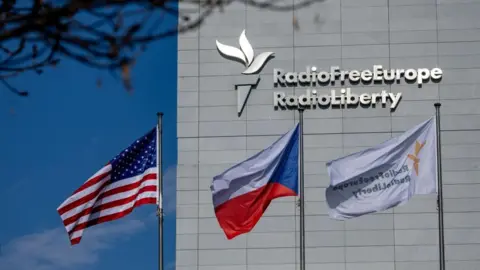
How Radio Liberty has built Ukrainian democracy before Trump turned his back on both
In response, the Ukrainian service launched Crimea.Realities and Donbas.Realities — the specialized newsrooms dedicated to countering Kremlin propaganda in occupied territories. They also deliver accurate reporting on the occupation, broadcast through the RL/RFE network, helping debunk Kremlin’s propaganda globally.
While nations like Ukraine, where a quarter of the population relies on RL/RFL, may weather the loss through other independent media, the impact is far more severe in countries like North Korea, Afghanistan, Iran, and China, where America's global media are often the only source of alternative information.
"From Belarus to Iran, from Russia to Afghanistan, Radio Free Europe and Voice of America are among the few free sources of information for those living under oppression," Czech Foreign Minister Jan Lipavský told AFP.
Autocracies win, America loses
Experts agree that shutting down US-funded outlets will not only weaken global democracy but also erode America's influence, built on promoting democratic values worldwide.
"[This decision sends] a certain message to all non-democratic forces in the world that the United States is withdrawing from attempts to influence the situation in other countries," Likhachov says.
As of 2025, the USAGM network spans over 100 countries, providing the US access to 5% of the world's population at just $2.22 per person annually. Experts warn that if these outlets are withdrawn, their absence will be swiftly filled — but not with independent journalism.
"These will be official state media or other players who have their own political, geopolitical agenda for influencing these regions," Likhachov explains, pointing specifically to Turkish, Chinese, and Russian outlets, rapidly expanding in countries with limited press freedom.
In 2025 alone, the Kremlin allocated $1.4 billion to its state-owned media — twice the budget of USAGM — with its largest network, Russia Today, broadcasting in over 100 countries and banned in 30 more for spreading disinformation.
The exit of RL/RFL from post-Soviet states will allow Russia to reclaim informational dominance in markets like Central Asia, where free speech is severely restricted, with the government of Kyrgyzstan previously trying to ban it.
Most importantly, the network’s exit will leave a void in a region critical to Trump's foreign policy — China, which has already celebrated the shutdown. In 2023, Beijing boosted its global reach by $7.9 billion for foreign propaganda, signaling a sharp rise in its push for global impact.
For decades, Radio Free Asia (RFA) has advanced US interests in China by exposing the regime’s abuses, particularly through its Tibetan and Uighur services.
In 2018, it became the first English-language media to report on China’s mass detention facilities for Uighur Muslims, sparking global outrage that led to sanctions. In 2020, RFA was the first to report Beijong's cover-up of the first COVID-19 deaths in Wuhan, shuttering the official death toll.
Beyond exposing Beijing’s human rights abuses, RFA counters its media dominance across Asia, a region China considers its geopolitical backyard. During Myanmar’s 2021 coup, over 250 million people across Asia turned to RFA’s social media coverage in just days, showing the power vacuum the US risks if the USAGM outlets shut down.
"The Iranian Ayatollahs, Chinese communist leaders, and autocrats in Moscow and Minsk would celebrate the demise of RFE/RL after 75 years,” RFE/RL CEO Stephen Capus said. “Handing our adversaries a win would make them stronger and America weaker."

